The Israel-based chronicler of a West Bank tragedy reflects on a ‘dehumanizing’ week
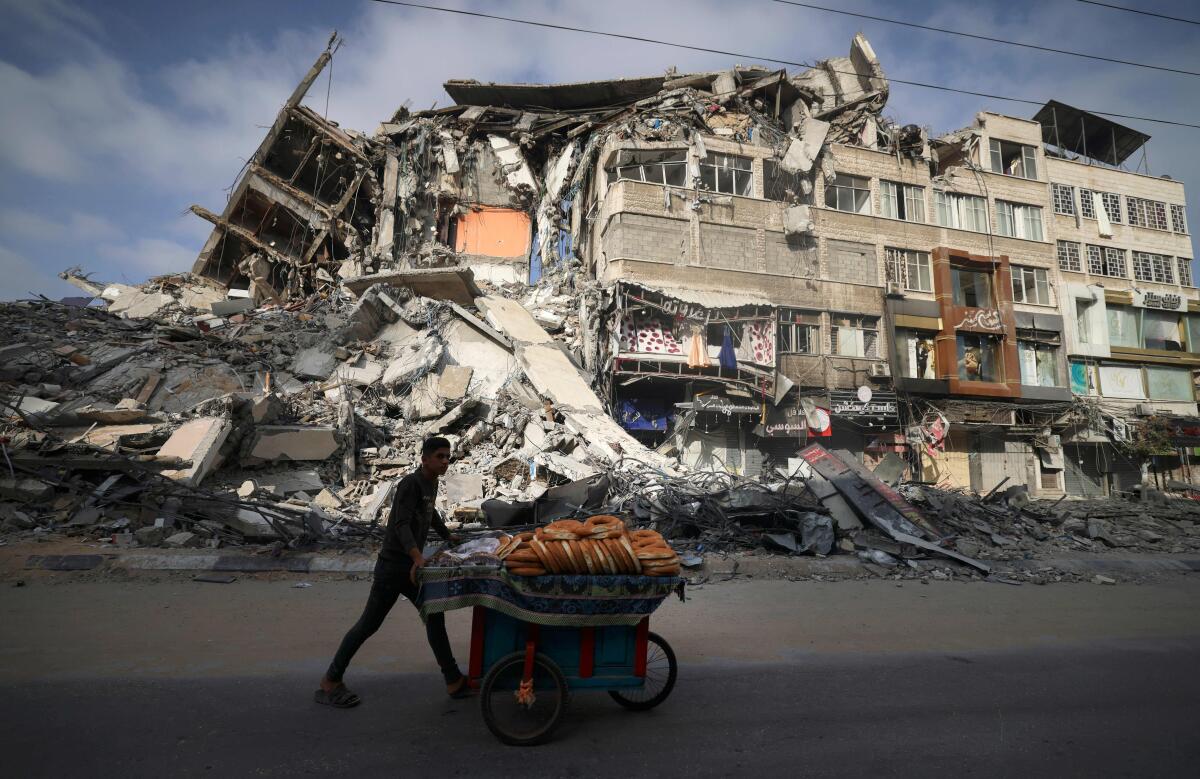
- Share via
Good morning, and welcome to the L.A. Times Book Club newsletter.
I’m Boris Kachka, the books editor at the Los Angeles Times, and I can’t stop thinking about dehumanizing violence.
That’s because I’ve been following the news, and also reading Nathan Thrall’s gut-wrenching new book, “A Day in the Life of Abed Salama.” A “Rashomon”-like deep dive into a school bus crash in the West Bank that killed six children and one teacher — and the ways it was compounded by a dysfunctional status quo for Israelis and Palestinians alike — the book came out just before that status quo was shattered by Hamas’ attack on Israel and the atrocities that followed.
Times contributor Stuart Miller’s conversation with Thrall preceded those horrors by three days, and I wanted to catch up with the writer, who lives in Jerusalem but is currently on an international book tour, to ask him what has changed for his family, the people in his book and the shattered country he lives in. My conversation with Thrall — Zooming from London — has been edited for clarity and length.
Sign up for our Book Club newsletter
Get the latest news, events and more from the Los Angeles Times Book Club, and help us get L.A. reading and talking.
You may occasionally receive promotional content from the Los Angeles Times.
Where were you when you first heard something was happening?
I was in New York, and my wife sent me a voice message on WhatsApp, which had in the background the sound of sirens. There was nothing in the news. I was hearing just directly from my wife that she was taking our three daughters into a shelter.
What was your reaction when you found out what had happened?
Horror, you know. The scale of the barbarity was utterly shocking. But before I saw any images of violence, my greatest shock was the very fact of seeing video of a truck filled with Hamas militants in the middle of a street in Israel. That is an image I never expected to see — no Israeli ever expected to see.
Your book is about the dysfunction of Palestinian areas that is somewhat by Israeli design. But now you were witnessing Israel’s inability to protect its own citizens.
It’s not as though I have changed my view of the strength or capability of the Israeli military, but what has I think changed for every Israeli is that the model that had been in place with respect to Gaza for the last 17 years — Israelis regarded it as the lesser of evils. The model was, control Gaza from the outside, and every few years we will “mow the lawn,” flatten it with aerial raids. And then they’ll learn their lesson. That model has been shown to be an utter failure.
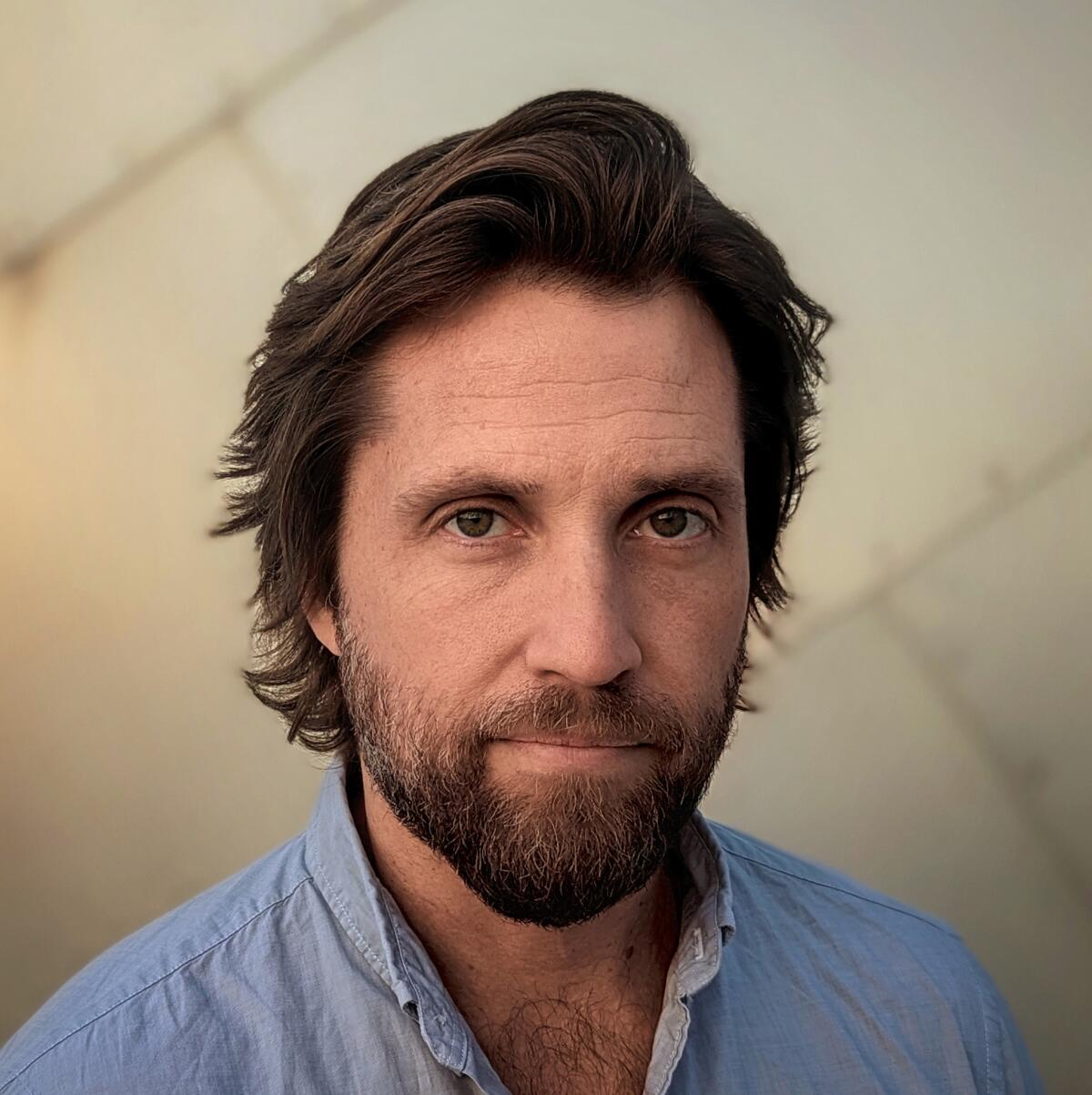
Well, there is a flattening of Gaza going on right now. And there are a lot of arguments on the American left about it. How is that discussion shifting in Israel?
There is widespread support for collectively punishing 2.1 million innocent people in Gaza, but in addition, there is a feeling that this government has entirely failed. The talk in Israel prior to this attack was about people leaving the country — about how much despair Israelis felt about the future of their children and grandchildren in this place.
I’m talking about, of course, a subgroup within Israel, the secular center and center left, and they are the economic heart of the country. When they were talking about the unlivability of this place, they weren’t even referring to the Palestinian issue. They were talking about their fear that Israel was becoming a theocracy. And now this is the worst kind of failure of their government.
What about the people you wrote about?
Well, I’ve been traveling all over the U.S. and U.K. with Abed Salama [whose son was killed in the book’s bus crash]. The day the attack happened, both the two exits from East Jerusalem were shut down. So you had 130,000 people trapped immediately. That has been eased, but there’s been a spike in settler violence in the West Bank, shooting attacks against Palestinians. I think that we’re both just deeply apprehensive about what is going to unfold.
Do some of the Palestinians you know see the Hamas attack as a positive development?
There is a mixture of emotion among the Palestinians I’ve spoken to. First there is a kind of joy and pride at just the image of people escaping this open-air prison of Gaza on paragliders. And then, so many Palestinians that I know were telling me that in fact Hamas had killed mostly soldiers [a recent report put military casualties at 13% of the death toll], and that x claim and y claim were not true. It’s very human that people don’t want to see that their side has done something horrible, but I found it extremely dispiriting to see the ease with which people could just deny something so obvious.
What is it like touring this book about the hardship of Palestinians at a time like this?
I think that it’s an incredibly difficult moment to convey any message of nuance about Israel and Palestine. Prior to the book’s release, I was so pleased that a left-wing outlet had asked me: Did I worry that I had made some people in the settler movement too sympathetic? That was exactly the kind of question I longed to be asked, because I wanted every character in this book to be real and for everybody who read it. I feel like all that nuance has disappeared.
How do you anticipate responding to any backlash?
People who’ve read the book have told me that they haven’t been able to stop thinking about it since Saturday because they’ve found it very prescient. And when I’ve asked, why are you using that word? They said it’s the dehumanization — that everybody in this book is living with the scars of dehumanization.
And so, one answer to the question of how can you tell these stories is: We are doomed to continue to live through this kind of horrific bloodshed unless we understand the lives of the people who live in this place. What existed before Saturday was a moral catastrophe, and it has to be ended. I’m not denying how much more difficult it is to do that now.
Next Book Club
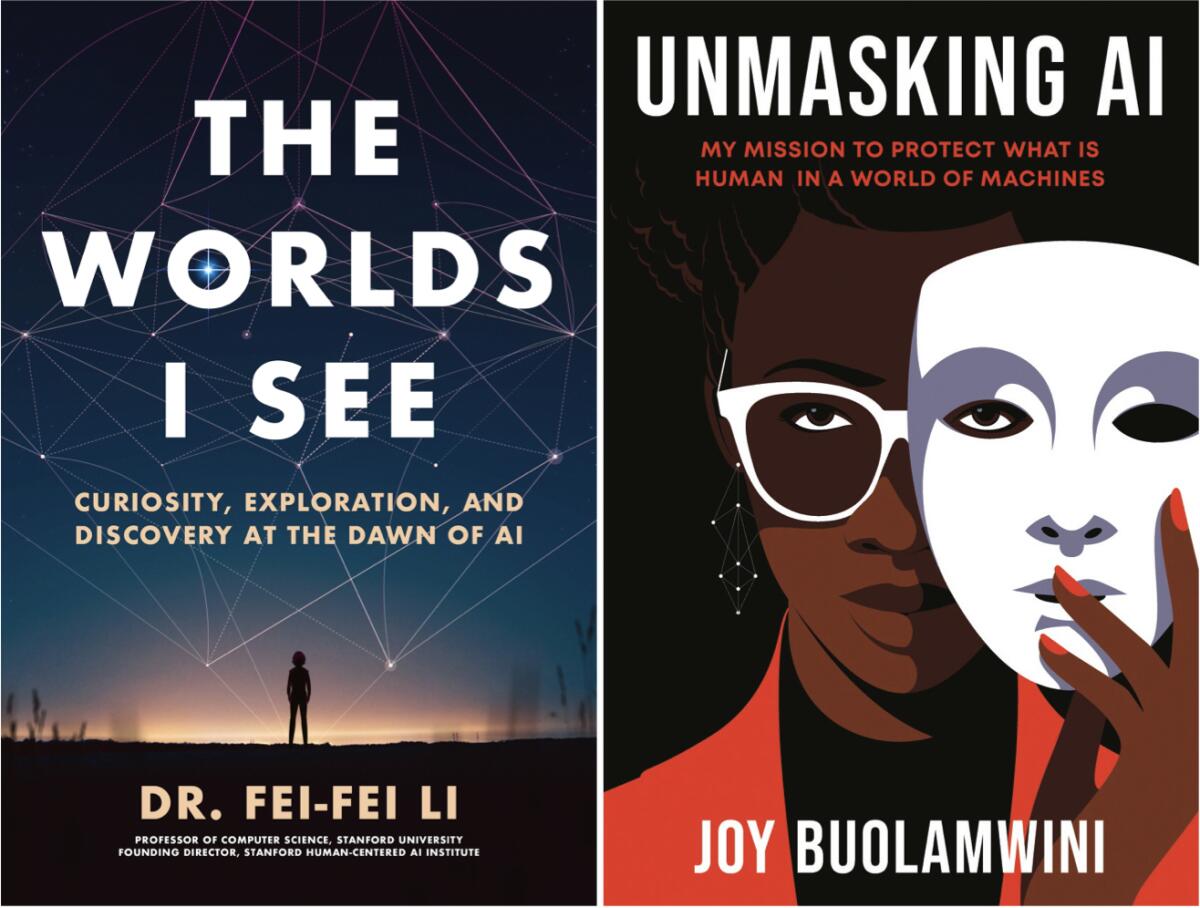
After two October events focused on big personalities and big news — first Walter Isaacson’s major biography, “Elon Musk,” and then former Washington Post Editor Martin Baron’s crackling journalism memoir, “Collision of Power” — November’s Book Club drills down into a longer-term overarching threat: artificial intelligence.
Join us mid-November for AI Night, a (perhaps appropriately) virtual event hosting two authors deeply enmeshed in research on the future and potential impact of chatbots and more. Joy Buolamwini, founder of the Algorithmic Justice League, will discuss themes of technology and humanity from her book “Unmasking AI: My Mission to Protect What Is Human in a World of Machines.” And Fei-Fei Li, founding director of the Stanford Institute for Human-Centered AI, will share insights from her new book, “The Worlds I See: Curiosity, Exploration, and Discovery at the Dawn of AI.”
The authors will join Times audio head Jazmín Aguilera at 6 p.m. Pacific on Nov. 14. Get tickets.
The Week in Books
Whither the blockbusters? Times senior editor Ryan Faughnder’s “Wide Shot” newsletter always slaps; this week he talks to Joanna Robinson, a podcaster and co-author of the new book “MCU: The Reign of Marvel Studios,” a thorough history of the dominant but currently plateauing Marvel Cinematic Universe. And elsewhere, contributor Chris Vognar talks to veteran film writer Foster Hirsch about his account of a very different but surprisingly analagous era of movie spectacle — “Hollywood and the Movies of the Fifties: The Collapse of the Studio System, the Thrill of Cinerama, and the Invasion of the Ultimate Body Snatcher — Television.”
And whither the revolutions? Former Times correspondent Vincent Bevins was on the ground when protests erupted in Brazil in 2013 — a left-wing uprising that actually led to the rise of a right-wing authoritarian. This pattern of failed protests repeated itself across the world in the previous decade, as Bevins tracks in his enlightening book “If We Burn: The Mass Protest Decade.” Staff writer Sam Dean asks him some burning questions about the 2010s.
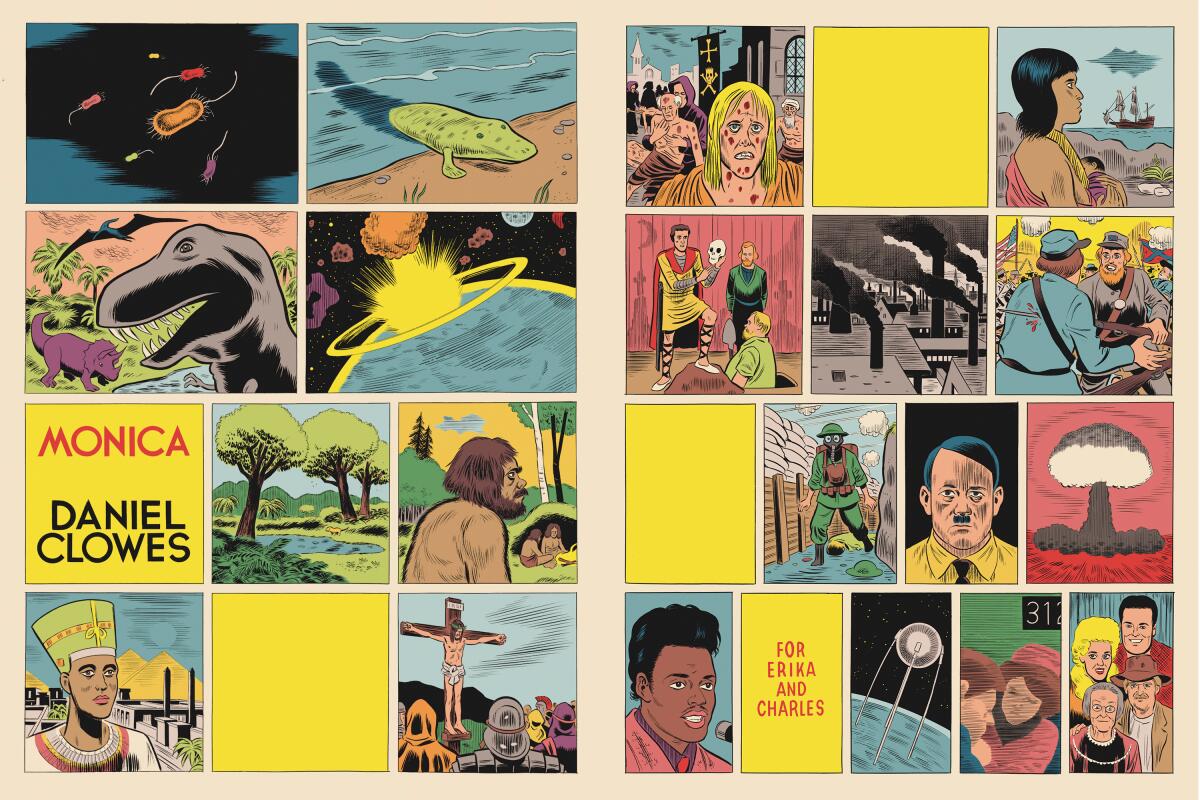
Daniel Clowes’ “magnum opus.” The iconic comics creator behind “Ghost World” and so much more has written a story collection his peers consider his masterpiece. Noel Murray profiles Clowes and speaks to his admirers about the deep personal origins of “Monica.” Clowes will be signing copies of “Monica” at Skylight Books on Oct. 20.
An Australian author on her American moment. If you haven’t heard of Helen Garner, get ready: Pantheon is reissuing three books from the author’s widely varied oeuvre, which ranges from true crime to harrowing autobiographical fiction. Garner, now 80, talks to contributor Bethanne Patrick about the thrill and challenge of renewed publicly and why it’s OK that she didn’t win the Nobel Prize.
Libraries and Latinidad. Over at The Times’ De Los section, contributor Roxsy Lin explores the myriad ways public libraries nurture Latinx writers across L.A. county and beyond — through not only collections but workshops, readings and a program to circulate books by indie authors.
Louise Glück, the winner of the 2020 Nobel Prize for Literature — the first given to an American poet since T.S. Eliot was awarded in 1948 — has died at 80. She was renowned for a prolific body of work consisting of tight, perfect verse on painful subjects. And she gave one of the most relatable responses to winning the Nobel in 2020, telling a reporter who called her up to deliver the news, “I really have to have some coffee and something right now. Two minutes.”
Salman Rushdie lives to tell the tale. This week the author, who survived a near-fatal stabbing in 2022 after decades living under a death sentence from Iran, announced he will publish a memoir of the experience, “Knife: Meditations After an Attempted Murder,” in April 2024.
Awards season highlights
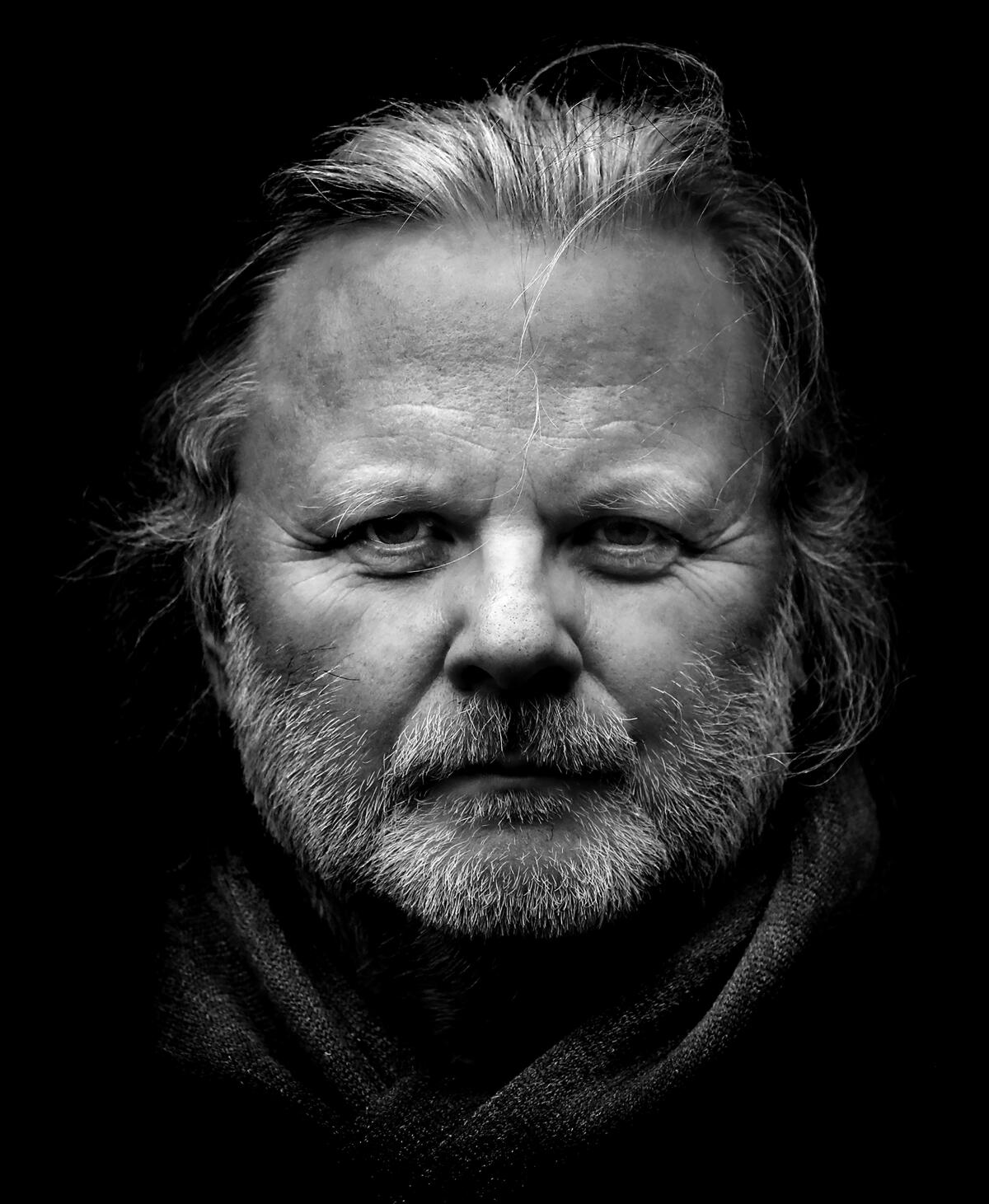
Speaking of the Nobel, the season of book awards is in high gear. The Big One came down last week, and the winner was Jon Fosse. Perhaps you’ve heard of the Norwegian novelist, whose mammoth “Septology” series has drawn influential American admirers, including New Yorker writer and charismatic academic superstar Merve Emre, who profiled Fosse last November. What American visibility Fosse enjoys is due in no small part to his tiny Bay Area publisher Transit Books; the press’ co-founders spoke to Times contributor Anderson Tepper last week about how they found Fosse and how the Nobel changes their world.
Nonetheless, Fosse is obscure and Nordic enough for Nobel pundit Alex Shepherd to declare, in the New Republic, that after years marked by scandals, erratic picks and Bob Dylan, the venerable Stockholm crew has “definitively exited its flop era.”
And hey, there are other prizes out there. In September, the National Book Foundation pointedly uninvited Drew Barrymore as the host of its Nov. 15 awards ceremony over her plans to defy the writers’ strike and bring her show back. On Friday they announced her replacement: Beloved book proselytizer and defender LeVar Burton. (Catch the Times Book Club event on banned books for which he was a delightful guest back in May.)
Place your bets on whom Burton will be inviting onstage for National Book Awards. Last week the foundation announced the 25 finalists in five categories. They tended toward the lesser-known, though in fiction, Pulitzer winner Paul Harding, acclaimed author Nana Kwame Adjei-Brenyah and L.A. local Justin Torres made the cut. Ned Blackhawk and Cristina Rivera Garza made the list for nonfiction and Bora Chung and David Diop were among the picks for translated literature.
And congratulations to James McBride, Ariel Aberg-Riger and Times alum Héctor Tobar, winners of the 2023 Kirkus Prizes for fiction, young readers’ literature and nonfiction, respectively.
Bookstore Faves: Libros Schmibros Lending Library
Every couple of weeks, we ask an L.A. bookseller or librarian what they’re selling, lending and loving. This time: Cuauhtémoc Hernández, the library manager for Libros Schmibros, a storefront nonprofit bilingual lending library in Boyle Heights.
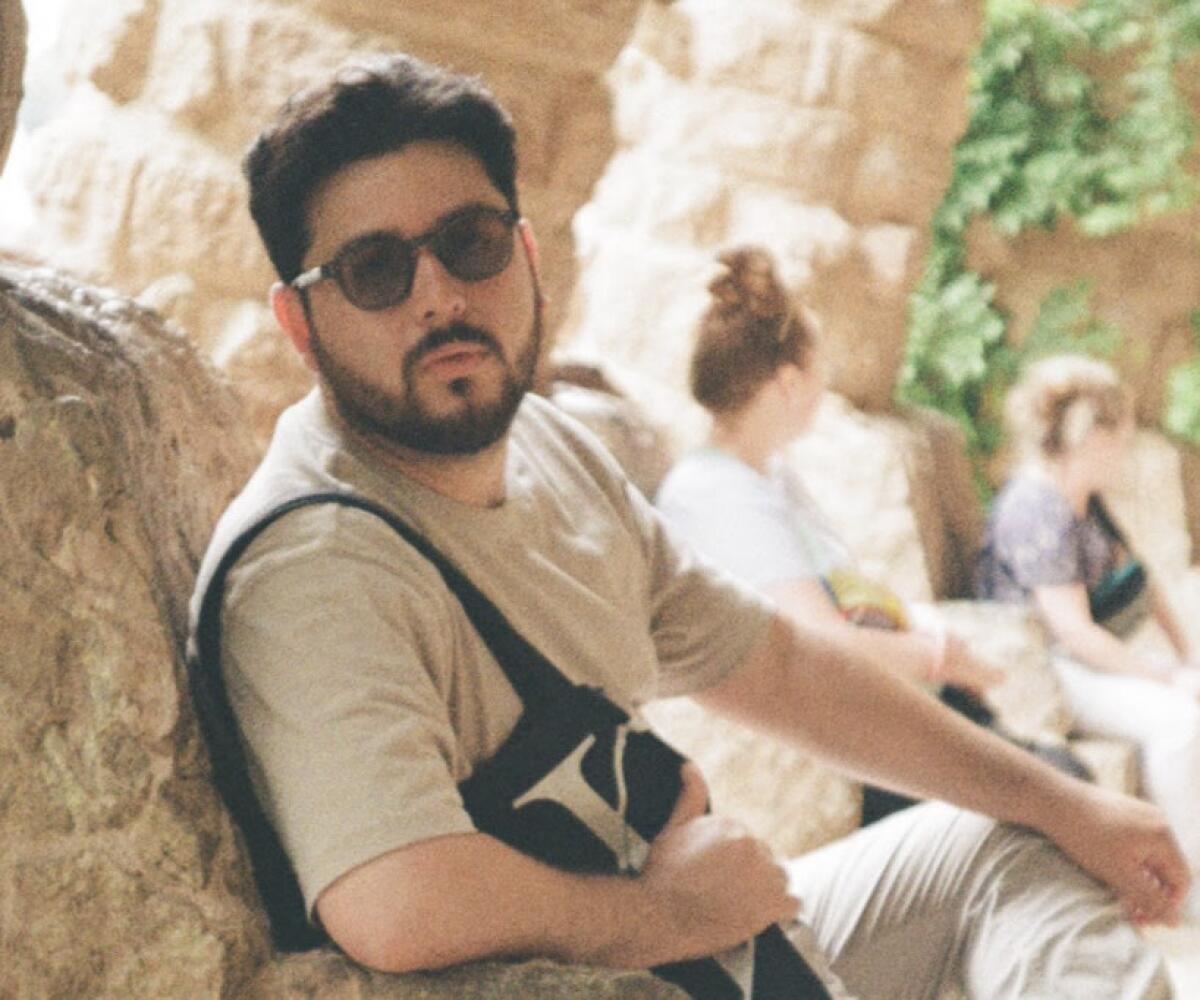
What’s flying off your shelves?
Children’s books in Spanish, and especially dual-language books, like José Lozano’s “Little Chanclas.”
What are your customers asking for?
People ask for anything by Gabriel García Márquez and James Baldwin.
What are you recommending and, in a sentence, why?
It depends on what people are interested in, but I like to recommend our Los Angeles section. Prof. George J. Sánchez‘s “Boyle Heights: How a Los Angeles Neighborhood Became the Future of American Democracy” has been popular.
What are you looking forward to that isn’t out yet?
I’m interested in “Judy Chicago: Herstory.” The book spans her decades-long career. I saw her show four years ago at Jeffrey Deitch gallery that covered her early work in Los Angeles from 1965-72 and was impressed by the breadth of her contributions across paintings, drawings, sculpture, installations and the documentation of her environmental and fireworks projects.
Sign up for our Book Club newsletter
Get the latest news, events and more from the Los Angeles Times Book Club, and help us get L.A. reading and talking.
You may occasionally receive promotional content from the Los Angeles Times.




